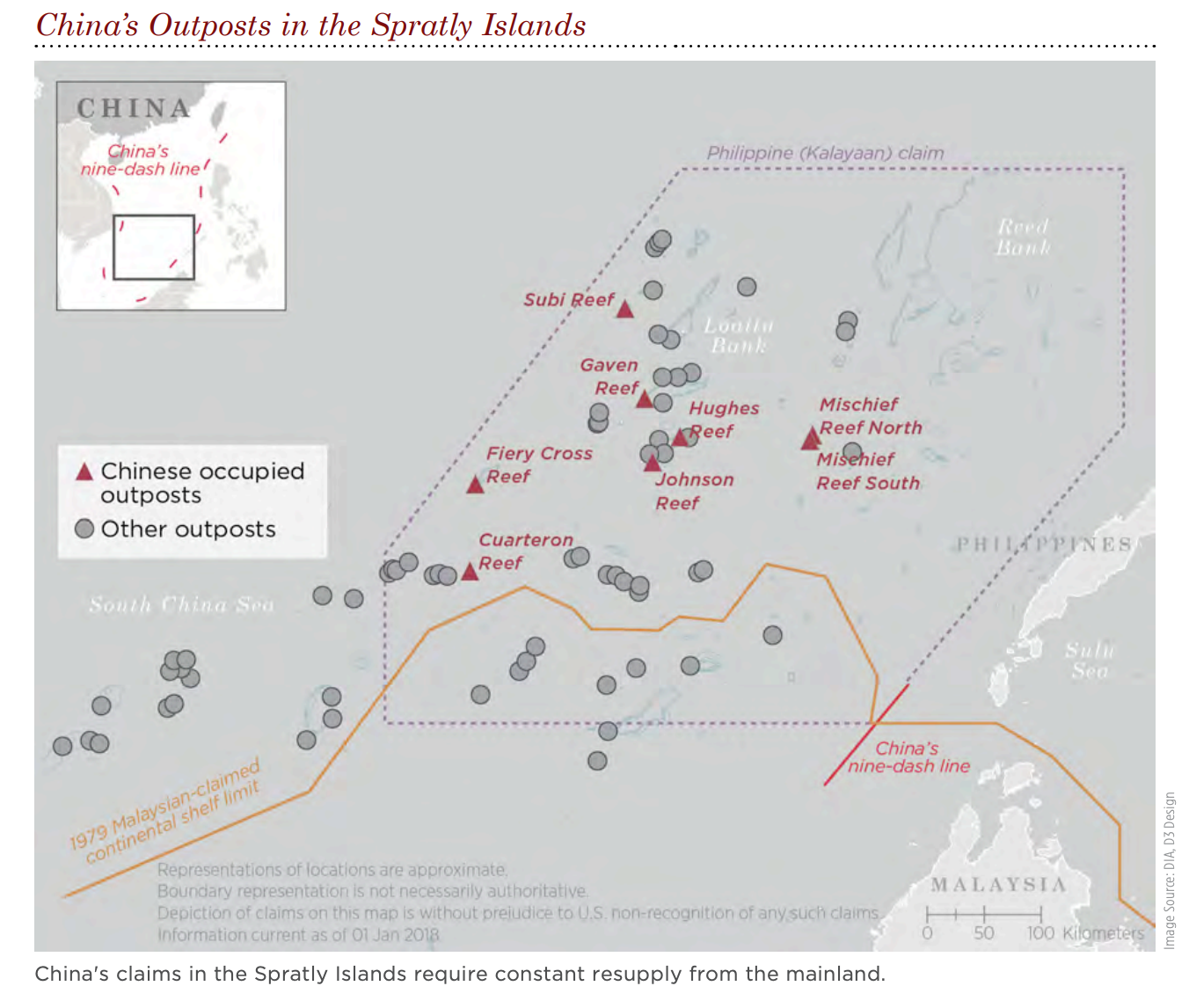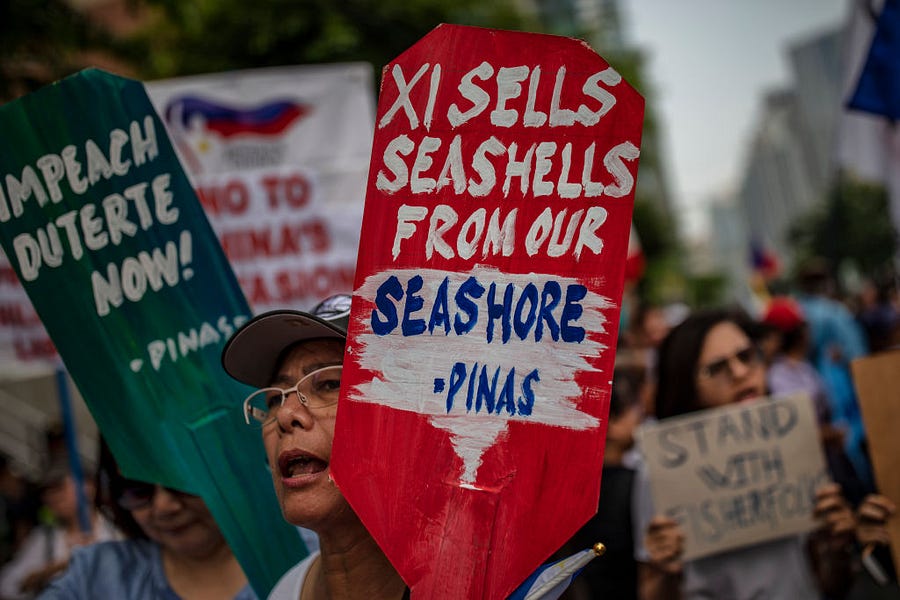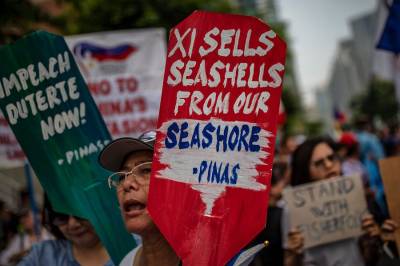On April 3, a Chinese coast guard vessel rammed and sunk a Vietnamese fishing boat near the Paracel Islands in the South China Sea. Eight Vietnamese fishermen were on board. Luckily, none of them perished. After the Chinese briefly held them, they were repatriated to their home country.
The sinking prompted a sharp rebuke from Vietnam’s Ministry of Foreign Affairs, which lodged a formal diplomatic note of protest with the Chinese embassy in Hanoi. “As have been stated on various occasions, Vietnam has ample historical evidence and legal basis to affirm its sovereignty over the Hoàng Sa (Paracel) and Trường Sa (Spratly) Islands in accordance with the international law,” the MFA said in a statement released online. “The above-mentioned Chinese vessel’s act violates Vietnam's sovereignty over the Paracel Islands, causes property losses and endangers the lives, safety and legitimate interests of the Vietnamese fishermen.”
In the grand scheme of things, the Chinese government’s sinking of a single Vietnamese fishing vessel isn’t a world-shaking event. But it is indicative of the Chinese Communist Party’s (CCP) broader designs for the South China Sea.
Beijing asserts it has sovereign rights throughout the Paracel archipelago, as well as the nearby Spratly Islands—rejecting an international arbitration decision that cut against its interests. And even at the height of the coronavirus pandemic—that is, at a time when Beijing is very concerned about its international image given its mishandling of COVID-19—the Chinese government couldn’t help itself. The CCP had to remind the Vietnamese that it would not abide by any restraints on its claimed dominion on the high seas.
The conspicuous timing of this incident didn’t escape the attention of the U.S. State Department. On April 6, Foggy Bottom’s spokeswoman Morgan Ortagus released a statement decrying China’s military maneuvers near the islands, as well as its deliberate sinking of the fishing vessel. “We call on the PRC [People’s Republic of China] to remain focused on supporting international efforts to combat the global pandemic, and to stop exploiting the distraction or vulnerability of other states to expand its unlawful claims in the South China Sea,” Ortagus wrote.
China’s Foreign Ministry spokesman, Zhao Lijian, fired back at Ortagus during a press conference the next day, demanding that the U.S. “stop linking the pandemic with maritime issues and focus on domestic and international anti-epidemic response instead of doing otherwise.” Zhao claimed that the disputed islands “are within China’s territory.”
But Ortagus recounted several important facts that should be remembered when the history of the coronavirus pandemic is written. She pointed out that “since the outbreak of the global pandemic, Beijing has also announced new ‘research stations’ on military bases it built on Fiery Cross Reef and Subi Reef,” while also landing “special military aircraft on Fiery Cross Reef” and deploying “maritime militia around the Spratly Islands.” (The same reefs mentioned by Ortagus are pictured in an image published in a 2019 Defense Intelligence Agency report. The image is reproduced below.)

Zhao did not deny this accusation during a press conference on April 7. “The Nansha Islands [the Chinese government’s name for the Spratly Islands] are within China's territory,” Zhao claimed. “China's activities on its own territory are legitimate, lawful, and entirely within its sovereignty.”
Zhao described the two research stations built in the islands as scientific establishments that are being used “for monitoring and field studies on vegetation, geological environment and marine ecology.” These efforts are intended to “help provide more public goods to regional countries and the international community,” Zhao said. In other words, the Chinese government’s continued development in the Spratly Islands is supposedly evidence of its altruism.
What’s at stake, in the bigger picture, is a July 2016 decision by an arbitration tribunal convened under the 1982 Law of Sea Convention. This arbitration proceeding was held after the Philippines, one of several nations claiming rights throughout the South China Sea, disputed the PRC’s attempt at territorial aggrandizement. The tribunal ruled in the Philippines’ favor—a decision Beijing didn’t accept, as the PRC rejected the proceedings out-of-hand.
The Chinese government has come up with something called the “Nine-Dash Line” (pictured on the DIA image reproduced above), which it uses to demarcate the waters it claims are under its jurisdiction. Sometimes the Chinese are deliberately ambiguous regarding the intended meaning of this imaginary line, but it usually has an ominous implication. This line extends far from China’s own coastlines. As the South China Morning Post reported in 2016, Beijing’s claim “encircles as much as 90 per cent of the contested waters,” running “as far as 2,000 km from the Chinese mainland to within a few hundred kilometers of the Philippines, Malaysia and Vietnam.”
That is very far out to sea. Under the United Nations Convention on the Law of the Sea, each nation has sovereignty up to 12 miles from its coastline and is allowed an “exclusive economic zone” as far as 200 miles from its coast. China maintains that its rights in the South China Sea go way beyond that, due to its own self-serving reading of history, which produced the “Nine-Dash Line.”
Ortagus reminded the Chinese that the arbitration tribunal had rejected its “Nine-Dash Line” in 2016. In response, Zhao, the Chinese Foreign Ministry spokesman, dismissed that decision out of hand, calling it “illegal and invalid.” China “does not accept or participate in the arbitration, nor does it accept or recognize the so-called award,” Zhao said, adding that his government’s position is “consistent with international law.” Other nations throughout the South China Sea disagree, as does the U.S. government.
China’s use of a coast guard vessel to sink the Vietnamese fishing boat was no accident. It is part of the People Liberation Army Navy’s (PLAN) longstanding policy. As the Defense Intelligence Agency explained in 2019, the China Coast Guard (CCG), “backed by the PLAN, commonly harasses Philippine and Vietnamese ships in the region.” The Chinese deliberately use CCG vessels, as opposed to warships, “for assertive actions in disputed waters to reduce the risk of escalation and to portray itself more benignly to an international audience.” The Chinese consider “maritime sovereignty” an issue for Chinese law and, therefore, a “domestic law enforcement issued under the purview of the CCG.”
In other words, the Chinese government used a coast guard vessel to sink the Vietnamese fishing boat because the Chinese consider the issue to be a law enforcement matter—and they don’t want it to be perceived as an act of war. This speaks volumes when it comes to the CCP’s view of the South China Sea—it’s supposed to be their property.
The U.S. and Vietnam were not the only governments to denounce the Chinese government’s attack. On April 8, the Philippines’ Department of Foreign Affairs expressed its “deep concern” over the sinking. Despite praising China’s handling of the coronavirus pandemic, the Philippines warned “that such incidents undermine the potential of a genuinely deep and trusting regional relationship between the Association of Southeast Asian Nations (ASEAN) and China.” There “is never a good time to indulge in provocations,” the statement continues, because “they usually end in defeat of aggression or a devastating price of victory.” Moreover, the “creation of new facts in the water will never give rise to legal right anywhere or anytime”—meaning China’s aggression won’t undo the 2016 arbitration tribunal’s decision in the Philippines’ favor.
The statement ends with an especially strong admonition: “COVID-19 is a very real threat that demands unity and mutual trust. In the face of it, neither fish nor fictional historical claims are worth the fuse that’s lit by such incidents.”
The phrase “fictional historical claims” is a reference to China’s “Nine-Dash Line.”
China’s intentions and actions in the South China Sea during the coronavirus pandemic are an additional reason why the U.S. cannot consider the CCP is a partner for “world order,” as some imagine.
Photograph of Filiipinos protesting outside the Chinese embassy in Makati, Metro Manila, Philippines, by Ezra Acayan/Getty Images.






Please note that we at The Dispatch hold ourselves, our work, and our commenters to a higher standard than other places on the internet. We welcome comments that foster genuine debate or discussion—including comments critical of us or our work—but responses that include ad hominem attacks on fellow Dispatch members or are intended to stoke fear and anger may be moderated.
With your membership, you only have the ability to comment on The Morning Dispatch articles. Consider upgrading to join the conversation everywhere.